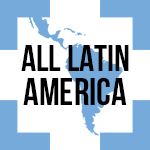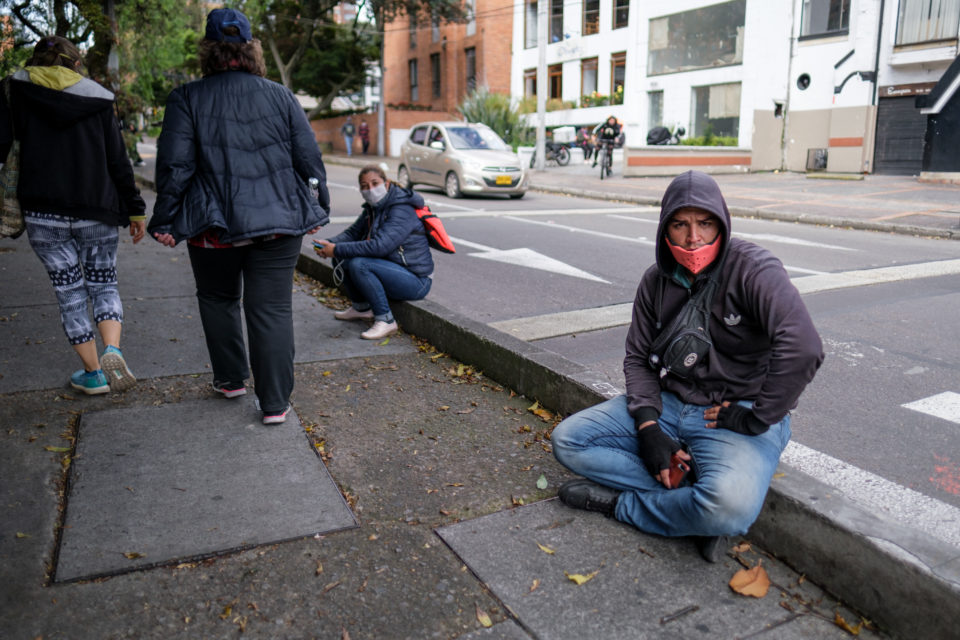In one of his final acts as head of state, former President Juan Manuel Santos signed an order that permitted nearly half a million Venezuelans to legally reside in Colombia and ensured their rights as they attempt to formalize their migrant status after fleeing their home.
This added to a previous decree that sought to allow an earlier wave of Venezuelans similar rights and access to the Colombian support network, bringing the total number of those affected to around 870,000 people.
The move by Colombia to grant this Special Permit to Stay (PEP, for Permiso Especial de Permanencia, in Spanish) to 442,000 of its neighbors was today praised by the Washington-based Inter-American Commission on Human Rights (IACHR), the human rights arm part of the hemisphere-wide Organization of American States (OAS).
The human rights group’s commissioner, Margarette Macaulay, said that “we are celebrating” what is known as Decree 1288 and praised a Colombian response that has been “without a doubt, an example for the region and the world.”
According to IACHR, “the decree allows Venezuelans to stay for a period of two years and have access to health, education, work and child and adolescent care services at the national, departmental and municipal levels, and they are authorized to carry out any legal activity or occupation in the country, including those carried out by virtue of an employment relationship or contract.”
The executive order’s impact is strengthened by a recent judicial decision by the Colombian Constitutional Court that guaranteed Venezuelan migrants greater access to the nation’s health care system.
In his statement saluting Colombia for both developments, Francisco Eguiguren, IACHR’s country rapporteur for Colombia and Venezuela, seemed to take aim at the United States and other nations across the world that have become increasingly hostile to accepting migrants and refugees claiming asylum.
“We congratulate the Colombian state because the measures adopted by the executive and judicial branches of government represent good practices for the region and the world, insofar as they demonstrate that migration policies can be based on a human rights approach and be aimed at reception and integration, instead of rejection and discrimination, as is the case in other countries,” said Eguiguren.
While Colombia, which shares the largest border with Venezuela, has seen more migrants than other countries, Brazil, Ecuador, Peru, and even Bolivia and Panama have also been seeing a large influx of Venezuelans in recent years.
The situation has grown so severe that Venezuelans are willing to risk the health and safety to cross the border, mostly through the Colombian border town of Cúcuta, where tens of thousands of people cross the main bridge between the two nations daily, many choosing to stay rather than return to their homes.
While IACHR and others have praised the high-level response, the situation on the ground remains tragic in many instances. The Associated Press reported that some women have abandoned their young children in Colombia in hopes they can be better taken care of, while other young children remain homeless living on the streets with no apparent guardians to care for them and insufficient, or no, medical care. Some have been preyed upon and trafficked into sex work, reports the AP.
“Figures provided by the government show 502 Venezuelan children have been taken into custody since the start of 2017,” reported the AP last month. “Ninety-nine of them were determined to be the victims of negligence, while 80 had suffered sexual abuse. Dozens of others were determined to be homeless, physically abused or in a state of malnutrition by the time they reached child welfare officials.”
The crisis spreads far beyond Colombia. Ecuador has been seeing more and more Venezuelans enter its borders as well, generally after migrants make the long journey by bus or other means of travel across the mountainous territory of Colombia.
Ecuadorian officials, as well as those in Peru, where some continue on to, recently increased restrictions on entry. Rather than just a national identification card, crossing the border will require a passport, something many Venezuelans don’t have. The response to slow the tide of migrants comes after a recent report stating that some 4,500 Venezuelans are now entering Ecuador daily, up from previous estimates of 1,000 or less, according to Reuters.
Officials in Ecuador have said publicly that around 600,000 Venezuelans had entered the country already in 2018 and about 109,000 of them have stayed, per Reuters. The outlet also reported that Peru, where some 400,000 Venezuelans now reside, is expected to follow suit in requiring passports, a restriction that would affect around 20% of those attempting to enter the tourism hotbed.
In addition to dire food and medicine shortages that have persisted for the past two years in Venezuela, the head of state in power, Nicolás Maduro, has been seeking to implement new currency and fiscal policies to address rampant inflation that some analysts predicted would hit one million percent in 2018, a rarely seen level in human history experienced only in catastrophic times such as interwar Germany and Zimbabwe in the early 2000s.
In a plan announced today, the country would begin pegging its currency, the bolívar, to the government’s new “Petro” cryptocurrency, a move that Reuters reports would lead to a devaluation of some 96%. The minimum wage would also be increased by some 3,000%.
“I want the country to recover and I have the formula,” said Maduro in a Friday night public address. “Trust me.”
Both the United States and Europe have sent significant financial aid to help increasingly desperate Venezuelans. While in Colombia to attend the inauguration of new President Iván Duque, U.S. diplomat Nikki Haley pledged another $9 million USD to help manage the migration crisis, brining the total assistance from the United States for Venezuelans in Colombia to some $46 million USD, according to the U.S. Agency for International Development (USAID).
In June, the European Union also committed some $41 million USD in humanitarian aid to Venezuelans, including support for Colombia to help deal with the ongoing influx.
Jason Marczak, director of the Latin American center at the Washington-based international relations think tank the Atlantic Council, argued in a recent opinion article that the United States has a vested interest in helping Colombia mitigate this crisis that goes beyond just humanitarian concern.
While referencing the positive returns on investment the United States has seen throughout its “Plan Colombia” program — which has provided more than $10 billion USD in assistance for security, peace-building, and combatting the drug trade in the Andean nation over the past 20 years — Marczak argued that further work should be done now to support the country in this new challenge.
“Colombia has already proved time and again how worthwhile an investment it is,” he wrote for The Hill. “A strong Colombia, we’ve learned, projects stability beyond its borders, especially as a counterbalance to the locus of instability in Caracas.”
“Assistance to Colombia isn’t aid; it’s an investment,”continued Marczak. “If we double down on our support at this watershed moment, there will be dividends to reap down the line. For two decades, U.S. lawmakers on both sides of the aisle have ensured that we stood by Colombia when the going got tough, and we’ve been rewarded mightily for it. Now with the stakes higher than ever, our message to the new administration in Bogotá should be just as clear.”
This article was originally published by Finance Colombia. It has been reprinted here with permission.


